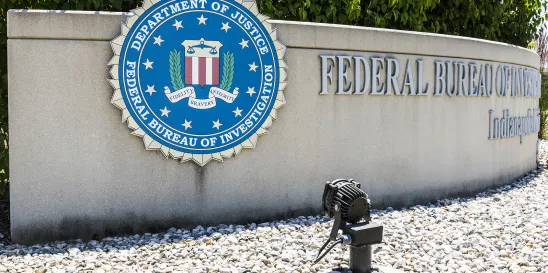On December 22, 2023, President Biden signed into law the Foreign Extortion Prevention Act (hereinafter “FEPA” or the “Act”) which was passed by the US Congress as part of the Fiscal Year 2024 National Defense Authorization Act. The Act aligns with the current administration’s national security agenda in that it broadens the scope and reach of US anti-bribery and corruption laws.
Though a valuable tool in combatting corruption, the FCPA has since its inception criminalized the giving or offering of bribes, not demanding or receiving them, an obvious deficiency given that every case of bribery involves a bribe giver and a bribe receiver. As a result, some commentators and analysts have long called for amendments to US law to criminalize passive bribery.[1]
In this article, we outline FEPA’s core provisions and relevant enforcement considerations for US companies, international organizations, and foreign governments.
Background
Since its enactment in 1977, the FCPA has prohibited US persons and entities from offering or paying bribes to foreign officials.[2] However, nothing in US law criminalized demand side, or passive, bribery by foreign officials. FEPA addresses this deficiency by making it illegal for any foreign government official to demand, receive, or agree to receive a bribe from a US company or individual, or any person while in the US territory in exchange or in connection with obtaining or retaining business.[3]
Prior to FEPA, the US Department of Justice (DOJ) relied on other criminal laws, such as money laundering laws and fraud laws to prosecute foreign bribe receivers. However, those statutes created obstacles that FEPA removes. For example, under FEPA, prosecutors will not need to establish fraudulent intent (as would be required in a fraud prosecution) or a financial transaction involving the proceeds of specified unlawful activity (as would be required in a money laundering prosecution).
In summary, ushered in with bipartisan support, FEPA equips US prosecutors with additional and more precise tools to target demand-side corruption worldwide.
Prohibition on Passive Bribery and Definition of “Foreign Official”
Under FEPA, it is “unlawful for any foreign official or person selected to be a foreign official to corruptly demand, seek, receive, or accept, or agree to receive or accept, directly or indirectly” something of value in exchange for: “(a) being influenced in the performance of any official act; (b) being induced to do or omit to do any act in violation of the official duty of such foreign official or person; or (c) conferring any improper advantage, in connection with obtaining or retaining business for or with, or directing business to, any person.”[4]
Notably, FEPA goes beyond the FCPA’s definition of “foreign official” to include senior foreign political figures and individuals acting in official and unofficial capacities for, or on behalf of, governments, departments, agencies, instrumentalities, or public international organizations.[5] This is designed to ensure that the law applies to informal power brokers who, while lacking any official government position, nevertheless have the ability to influence government decision making.
Extraterritorial Jurisdiction
FEPA closely tracks the FCPA’s jurisdictional scope, giving US prosecutors authority to charge bribery cases involving US interests regardless of where the offense occurred.
Specifically, the DOJ has jurisdiction over foreign officials who violate FEPA: (1) in US territory; (2) when making exchanges with any US citizens, residents, or entities residing in or organized under US laws; or (3) when making demands of US companies that are issuers of U.S. securities under Section 3(a) of the Securities Exchange Act of 1934 (15 U.S.C. 78c(a)).
Steep Penalties
FEPA’s steep penalties are more severe than those under the FCPA and, as such, will serve as a powerful deterrent to corruption abroad and in the US.
Under FEPA, foreign officials who demand or receive bribes face fines up to USD 250,000 or three times the bribe’s monetary value, imprisonment for up to 15 years, or both.
Reporting Obligations
FEPA also requires, no later than one year after its enactment and annually thereafter, the US Attorney General to submit to Congress (and post on the publicly available website of the DOJ) a report detailing:
- demands by foreign officials for bribes from US entities and the efforts of foreign governments to prosecute such cases;
- US diplomatic efforts to protect US entities from foreign bribery, and the effectiveness of those efforts in protecting such entities;
- major actions taken under FEPA in the previous year, including enforcement actions taken and the penalties imposed;
- the effectiveness of the DOJ in enforcing the Act; and
- the resources or any legislative actions the DOJ may need to ensure adequate enforcement of FEPA.[6]
These reporting obligations further underscore the current Congress’ global anti-corruption agenda and will create pressure on DOJ to enforce FEPA aggressively.
The Impact of FEPA Remains to be Seen
Below are several reflections on the new law to keep in mind in 2024.
First, FEPA’s enactment may foreshadow a shift in US enforcement priorities from US companies that are suspected of paying bribes to foreign officials who are suspected of receiving bribes.
Second, companies can, and should, try to use FEPA to protect themselves by informing foreign officials who demand bribes that they can now be prosecuted under US law. Companies that are investigated by DOJ for FCPA violations may be able to avoid prosecution by positioning themselves as victims.
Third, despite FEPA’s extraterritorial reach, it remains to be seen whether US prosecutors will be able to bring foreign bribe takers to the US for prosecution. Even when there is an extradition treaty in place (not always the case, especially with countries that are high risk for corruption) foreign governments may be unwilling to extradite their own officials out of fear that they will provide information to US authorities about other corrupt government officials. Therefore, in many cases, the penalties may consist largely of “naming and shaming” and preventing the bribe takers from travelling internationally.
Fourth, in those cases in which foreign bribe takers are extradited to the US, they may disclose information about corrupt relationships with US companies, thus bringing increased regulatory attention on the nature and substance of contacts with these officials and placing new responsibility on US companies to scrutinize and police these relationships.
Additional Considerations
In light of FEPA, companies should implement and maintain robust anticorruption compliance programs in preparation for what may be a new and more balanced enforcement environment. To that end, compliance departments should (i) evaluate their existing policies and procedures to determine whether enhancements should be made to allow companies to use FEPA to protect themselves against foreign bribe demands; and (ii) provide enhanced trainings for employees who engage directly with foreign officials.
Finally, FEPA should also be closely reviewed and considered by foreign state-owned companies, embassies, and international organizations, particularly those with significant interactions with US companies or a significant presence in the US. FEPA’s broad definition of foreign official also brings in to focus the activities of ambassadors, embassy staff, the staff of UN organizations, World Bank Group entities, and other international bodies while in the US or abroad, potentially exposing these individuals to prosecution in the US if they receive bribes from US persons. As such, it is important for all those potentially impacted by FEPA to understand how they might be affected and to strengthen their anti-bribery and corruption controls accordingly.
[1] The American Interest, Two to Tango: Attacking the Demand Side of Bribery (Dec. 17, 2018), https://www.the-american-interest.com/2018/12/17/two-to-tango-attacking-the-demand-side-of-bribery/; The FCPA Blog, Here’s how to prosecute foreign bribe takers (Dec. 28, 2018), https://fcpablog.com/2018/12/28/heres-how-to-prosecute-foreign-bribe-takers/; The FCPA Professor, The Foreign Extortion Prevention Act: A Response to Professor Koehler (Aug. 19, 2019), https://fcpaprofessor.com/foreign-extortion-prevention-act-response-professor-koehler/
[2] 15 U.S.C. § 78dd-1, et seq.
[3] FEPA can be found in Section 5101 of the NDAA, available here: https://www.congress.gov/118/bills/hr2670/BILLS-118hr2670enr.pdf.
[4] 18 U.S.C. § 201(f).
[5] 18 U.S.C. § 201(a).
[6] 18 U.S.C. § 201(f).






 />i
/>i

